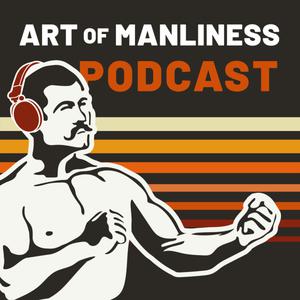
The Art of Manliness
The Art of Manliness
The Art of Manliness Podcast aims to deepen and improve every area of a man's life, from fitness and philosophy, to relationships and productivity. Engaging and edifying interviews with some of the world's most interesting doers and thinkers drop the fluff and filler to glean guests' very best, potentially life-changing, insights.
- 50 minutes 32 secondsHow to Use Leverage Points to Get Unstuck in Work and Life
When people get stuck in their job or personal life, the common response is to either work harder or shrug and accept that "that's just the way things are."
My guest today has a much better solution to getting moving and making progress again.
Dan Heath is a bestselling author whose latest book is Reset: How to Change What's Not Working. Today on the show, Dan shares how to escape from ineffective systems and the inertia of continuing to do things the way they've always been done by pressing on leverage points — places where a little bit of effort yields disproportionate returns. Dan explains why you need "to go and see the work," why meaningful change requires "restacking resources," how short, focused "bursts" of effort often accomplish more than prolonged campaigns, how sometimes being inefficient can actually make us more effective, and more. Along the way, Dan shares plenty of stories and examples that illustrate how to implement these principles into your work, relationships, and family.
Resources Related to the Podcast
- Dan's previous appearance on the AoM podcast: Episode #591 — Solve Problems Before They Become Problems
- AoM Article: You Need a Reset Day
- AoM Podcast #896: The Art and Science of Getting Unstuck
- YouTube video: Spotify Engineering Culture
Connect With Dan Heath
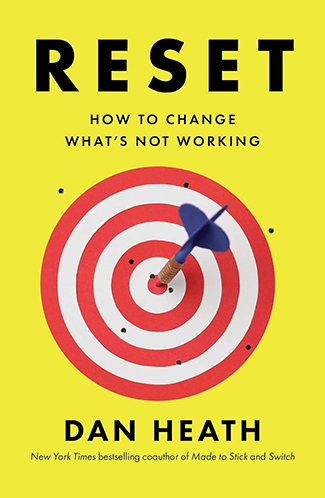 21 January 2025, 11:00 am
21 January 2025, 11:00 am - 48 minutes 55 secondsStop Saying Um (And Fix the Other Vocal Tics That Are Sabotaging Your Speaking)
Think about a time you've had to speak in front of others — maybe during a work presentation, a wedding toast, or even on a first date. Did you struggle with using too many filler words, such as "um" and "like," talk too fast, or awkwardly ramble?
Most of us try to fix these saboteurs of speech by giving ourselves mental mantras: "Slow down"; "Think about what you want to say."
But my guest would say that becoming a more engaging and effective speaker comes down to realizing that it's a very physical act that requires getting out of your head and into your body.
Michael Chad Hoeppner, a communication coach who has worked with everyone from presidential candidates to business executives, is the author of Don't Say Um: How to Communicate Effectively to Live a Better Life. Today on the show, Michael explains why you need to treat speaking as a sport and shares embodied drills and exercises — from playing with Legos to talking with a wine cork in your mouth to throwing a ball against a wall — that will fix common delivery problems, including eliminating ums, enhancing vocal variety, and managing your gestures.
Resources Related to the Podcast
- AoM Article: Becoming Well-Spoken — How to Minimize Your Uhs and Ums
- AoM Podcast #698: The Secrets of Public Speaking From History’s Greatest Orators
- AoM Podcast #732: Tips From a Top TED Talker on How to Be Heard
Connect With Michael Chad Hoeppner
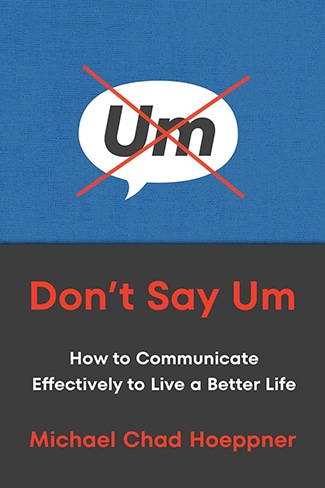 14 January 2025, 11:00 am
14 January 2025, 11:00 am - 56 minutes 50 secondsMan's Search for Meaning, With Viktor Frankl's Grandson
I first read Man's Search for Meaning by the neurologist, psychologist, and philosopher Viktor Frankl in high school, and I have re-read it several times since. It's one of the books that's had the biggest impact on my life, so it was a real treat to speak with Alexander Vesely, Frankl's grandson, about his grandfather's ideas and legacy.
Today on the show, I talk to Alexander, who is a documentarian, and like his grandfather, a psychotherapist, about Frankl's life, his development of logotherapy, a type of meaning-centered therapy, and how that approach to the psyche was tested during Frankl's time in the concentration camps. We discuss why Frankl said that "everyone has their own Auschwitz," how a lack of existential meaning can create depression, the three ways to actualize meaning in your life, whether meaning is something that is objective or subjective, the freedom we have to choose our attitude in all circumstances, including suffering, and more.
Resources Related to the Podcast
- Man's Search for Meaning by Viktor Frankl
- The Doctor and the Soul by Viktor Frankl
- Viktor and I: The Life and Work of Viktor Frankl — Alexander's documentary about his grandfather
- Living Logotherapy by Elisabeth Lukas and Heidi Schönfeld
- Logotherapy Online Academy
- Viktor Frankl Institute
Connect With Alexander Vesely
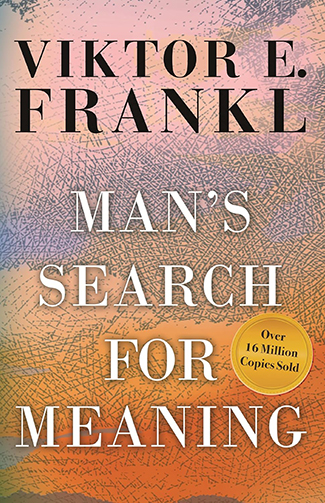 7 January 2025, 11:00 am
7 January 2025, 11:00 am - 49 minutes 21 secondsHow to Hack the Habit Loop to Build a Better Life
Think about your habits, the things you do automatically without much thought — from brushing your teeth in the morning to scrolling social media before bed.
There’s a lot going on with these behaviors.
On one level, they’re just routines and actions wired into our brains through repetition. But there’s also more to it than that. Our habits shape who we are, influence our health and happiness, and determine much of our success in life. There’s a reason changing habits is one of the most powerful ways to transform ourselves.
Today on the show, Dr. Gina Cleo will help us understand the science of habit formation and how we can harness it to build better behaviors. Gina is a researcher with a PhD in habit change and the author of The Habit Revolution: Simple Steps to Rewire Your Brain for Powerful Habit Change. Gina and I discuss the three elements of the habit loop and how to hack them to develop good habits and break bad ones. Along the way, we talk about why micro-habits are so effective for creating lasting change, the differences between men and women when it comes to forming habits, how long it really takes for a habit to stick, and much more.
Resources Related to the Podcast
- AoM Article: Unlocking the Science of Habits — How to Hack the Habit Loop
- AoM Podcast #470: A Proven System for Building and Breaking Habits
- AoM Podcast #581: The Tiny Habits That Change Everything
- AoM Article: Disenchant Your Bad Habits
- Self-Compassion by Kristin Neff
Connect With Gina Cleo
30 December 2024, 11:00 am - 1 hour 2 minutesPhilosophical Tools for Living the Good Life
Note: This is a rebroadcast.
Most everyone wants to live a good, meaningful life, though we don’t always know what that means and how to do it. Plenty of modern self-improvement programs claim to point people in the right direction, but many of the best answers were already offered more than two thousand years ago.
My guests have gleaned the cream of this orienting, ancient-yet-evergreen advice from history’s philosophers and shared it in their new book, The Good Life Method: Reasoning Through the Big Questions of Happiness, Faith, and Meaning. Their names are Meghan Sullivan and Paul Blaschko, and they’re professors of philosophy at the University of Notre Dame. Today on the show Meghan and Paul introduce us to the world of virtue ethics — an approach to philosophy that examines the nature of the good life, the values and habits that lead to excellence, and how to find and fulfill your purpose as a human being. We discuss how to seek truth with other people by asking them three levels of what they call “strong questions” and engaging in civil and fruitful dialogue. We then delve into why your intentions matter and why you should use “morally thick” language. We also examine the role that work and love has to play in pursuing the good life, and how the latter is very much about attention. We end our conversation with how a life of eudaimonia — full human flourishing — requires balancing action with contemplation.
Resources Related to the Podcast
- AoM article and podcast on phronesis or practical wisdom
- Aristotle’s Nicomachean Ethics
- After Virtue by Alasdair MacIntyre
- AoM Article: Why Are Modern Debates on Morality So Shrill?
- Sunday Firesides: Virtue Isn’t Virtue Til It’s Tested
- Iris Murdoch
- AoM Article: Why Men Should Read More Fiction
- The Road by Cormac McCarthy
- AoM podcast on The Road
- AoM article on contemplative self-examination, including instructions on how to do the examen of St. Ignatius
Connect With Meghan and Paul
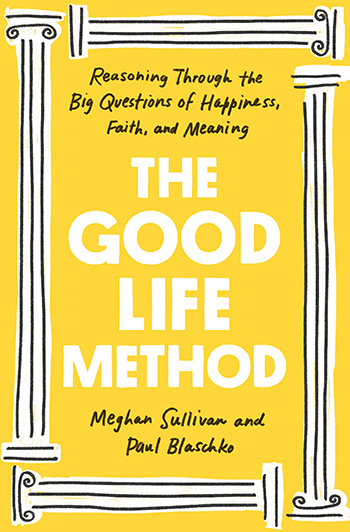 25 December 2024, 11:00 am
25 December 2024, 11:00 am - 48 minutes 21 secondsThe 6 Principles for Writing Messages People Won't Swipe Away
Think of all the texts, emails, and social media posts you're inundated with each day. Sometimes you read them, and sometimes you swipe them away, telling yourself, perhaps not so honestly, that you'll revisit them later.
If you're the sender of such missives and memos or the creator of content, you hope the recipient has the first response, that, instead of deep-sixing your message, they take the time to engage and take action on it.
How do you increase the odds of that happening? Rather than just guessing at the answer, Todd Rogers has done empirical experiments to discover it. Todd is a behavioral scientist, a professor of public policy at the Harvard Kennedy School, and the author of Writing for Busy Readers: Communicate More Effectively in the Real World. Today on the show, Todd explains the four-stage process people use in deciding whether to engage with your writing, whether in a personal or business context, and how influencing these factors not only comes down to the style of your writing, but its overall design. Todd offers tips to improve both areas, so that you can effectively capture people's attention.
Resources Related to the Podcast
- AoM Podcast #971: The 5 Factors for Crafting Simple (Read: Effective!) Messages
- AoM Podcast #666: The Power of Brevity in a Noisy World
- AoM Podcast #580: Why People Do (Or Don’t) Listen to You
Connect With Todd Rogers
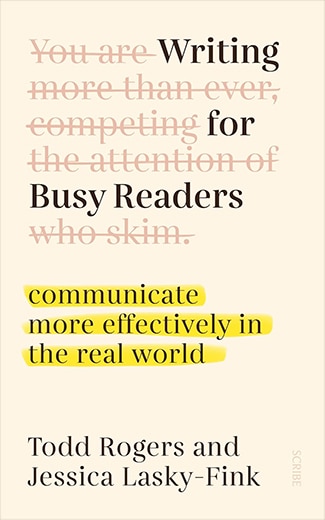 23 December 2024, 11:00 am
23 December 2024, 11:00 am - 50 minutes 45 secondsThe Swiss Army Knife of Fitness — How to Get Lean, Strong, and Flexible With Kettlebells Alone
What if there was one piece of fitness equipment that was affordable, didn’t take up much space, could get you both strong and flexible, and was fun to use?
While that might sound too good to be true, my guest, Pat Flynn, would say you can find all those benefits in the old-school kettlebell. Pat, who’s the author of Strong ON!: 101 Minimalist Kettlebell Workouts to Blast Fat, Build Muscle, and Boost Flexibility―in 20 Minutes or Less, calls kettlebells the Swiss Army knife of workout tools and the minimalist’s ultimate secret fitness weapon.
Today on the show, we unpack why Pat’s such an advocate for bells, but before we get there, we first take a dive into his background in philosophy and why beginning a workout program takes faith. We then talk about how to use kettlebells to get an all-around fit physique, including the three kettlebell weights that make for an ideal starter set, the two best exercises for building muscle, the pyramid-shaped program that can facilitate body recomposition, how to incorporate progressive overload into kettlebell training, which kettlebell exercise Coach Dan John considers “the fat-burning athlete builder,” the “300 Swings Challenge” that will help you take a Bruce Lee approach to fitness, and much more.
Resources Related to the Podcast
- AoM Article: Become Strong Like Bull — The Kettlebell Workout
- AoM Article: How to Perform 4 Kettlebell Exercises — An Illustrated Guide
- AoM Podcast #295 — Kettlebells and the Psychology of Training
- AoM Article: Strength, Power, Conditioning — How to Master the Kettlebell Swing
Connect With Pat Flynn
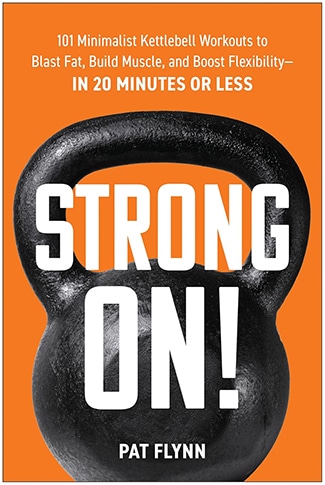 18 December 2024, 11:00 am
18 December 2024, 11:00 am - 57 minutes 14 secondsThe Roman Caesars' Guide to Ruling
The Roman caesars were the rulers of the Roman Empire, beginning in 27 BC with Julius Caesar’s heir Augustus, from whom subsequent caesars took their name, and lasting until around the fall of the Western Empire in 476 AD. The caesars transitioned the Roman Republic to autocratic rule, consolidating vast territories under centralized authority and shaping Western governance, law, and culture. Their reign marked one of history's most influential periods, laying the groundwork for modern empires and enduring legacies in political and architectural innovation.
They also left behind some instructive leadership lessons, in both what and what not to do.
Here to unpack some of the Roman Empire's most significant caesars as both histories and leadership case studies is Barry Strauss, who is a classicist, professor, military historian, fellow at Stanford's Hoover Institution, and the author of numerous books, including Ten Caesars. Today on the show, Barry shares how Augustus consolidated power by initially cleaning house, a redeeming quality of the otherwise infamous Nero, the strategies Vespasian and Severus used to gain legitimacy as outsiders, why Marcus Aurelius was an insightful philosopher but struggled as an emperor, the emperor under whose rule the empire began its decline, what Constantine understood about the idea that if you want things to stay the same, everything must change, and much more.
Resources Related to the Podcast
- Barry's previous appearance on the AoM podcast: Episode #487 — Leadership Lessons From the 3 Greatest Ancient Commanders
- Barry's forthcoming book: Jews vs. Rome — Two Centuries of Rebellion Against the World's Mightiest Empire
- AoM Podcast #346: The Fall of the Roman Republic
- AoM Podcast #969: The Making of a Stoic Emperor
Connect With Barry Strauss
 16 December 2024, 11:00 am
16 December 2024, 11:00 am - 1 hour 1 minuteThe Winter Mindset: How Norwegians Love the Winter (And You Can Too)
When people think about winter, they often focus on the negatives: the cold, the dark, and the seasonal depression the season can bring. But my guest today questions whether winter really has to be so miserable and says that by changing our mindset, we can actually learn to enjoy and even thrive during this season.
Kari Leibowitz is a psychologist and the author of How to Winter: Harness Your Mindset to Thrive on Cold, Dark, or Difficult Days. She spent a year at the northernmost university in the world in Tromsø, Norway, studying why people living in the Arctic, where the sun doesn't rise for two months, don't suffer from seasonal depression at the rates you might expect. Today on the show, Kari explains how our expectations can create a nocebo effect that makes winter feel worse than it needs to, why breaking winter into three distinct sub-seasons can help us appreciate it more, how Nordic practices like hygge can make darkness feel cozy rather than oppressive, and why getting outside and staying social — even when it's cold and dark — are keys to thriving during the season.
Resources Related to the Podcast
- AoM Podcast #856: Befriending Winter
- AoM Article: 8 Things That Can Help You Get More Hygge This Winter
- AoM Podcast #566: How to Have a Hyggely Christmas and a More Memorable New Year
- AoM Article: How Saunas Can Help Save Your Body, Mind, and Spirit
- AoM Podcast #801: The Cold Water Swim Cure
- Sunday Firesides: Contentment Through Contrast
- Sunday Firesides: No Such Thing as Bad Weather
Connect With Kari Leibowitz
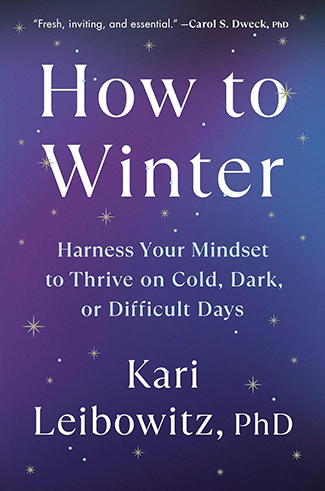 11 December 2024, 11:00 am
11 December 2024, 11:00 am - 56 minutes 40 secondsUndoing Urgency — How to Stop Drowning in Tasks and Start Living With Purpose
Feeling overwhelmed by an endless to-do list? Like you're constantly putting out fires but never getting ahead? You're not alone. Many people today feel like they're drowning in urgency — filling every minute with tasks that feel critical in the moment but may not truly matter in the long run.
Here to help us understand how to escape this cycle is Matt Reynolds, a strength coach, business owner, and the author of Undoing Urgency: How to Focus on What Matters Most. Today on the show, Matt explains what creates that feeling of being overwhelmed by urgency, how to distinguish between status and true value, and why you can only effectively pursue 2-3 major goals at once. We discuss using the Eisenhower Decision Matrix to identify what tasks truly matter, how to apply the concept of "minimum effective dose" beyond just fitness, and why sometimes the pursuit of a goal matters more than achieving it. We end our conversation with concrete steps you can take today to start undoing urgency in your life.
Resources Related to the Podcast
- Matt's previous appearances on the AoM podcast:
- AoM Article: The Eisenhower Decision Matrix — How to Distinguish Between Urgent and Important Tasks and Make Real Progress in Your Life
- AoM Article: Motivation Over Discipline
Connect With Matt Reynolds
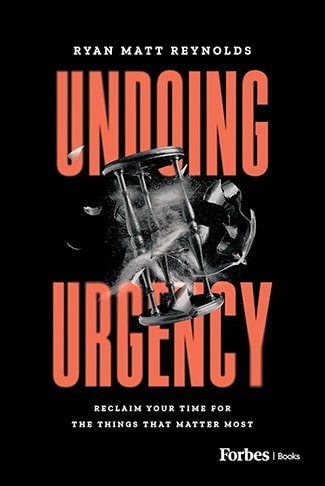 9 December 2024, 11:00 am
9 December 2024, 11:00 am - 44 minutes 25 secondsWhat Sports Betting Is Really Doing to Players, Games, and Fans
Sports gambling has exploded in America. You can't watch a game today without being bombarded by ads from betting companies, often co-branded with the major sports leagues themselves. It's a dramatic shift from just seven years ago, when these same leagues were unified in their opposition to legalized sports betting.
Michael Lewis, the bestselling author of Moneyball, The Big Short, and The Blind Side, has been exploring this transformation in the latest season of his podcast Against the Rules. Today on the show, Michael explains how we went from prohibition to proliferation, unpacking how a 2018 Supreme Court decision opened the floodgates for an industry that's now seeing over $100 billion in annual bets. We discuss how betting companies use data and psychology to nudge people into making increasingly complex and unfavorable wagers, why young men are particularly susceptible to gambling addiction, and what the rise of "prop bets" means for the integrity of sports. We also get into the concerning public health implications of widespread sports betting and what past addictive epidemics might tell us about where this is all heading.
Connect With Michael Lewis
4 December 2024, 11:00 am - More Episodes? Get the App
Your feedback is valuable to us. Should you encounter any bugs, glitches, lack of functionality or other problems, please email us on [email protected] or join Moon.FM Telegram Group where you can talk directly to the dev team who are happy to answer any queries.